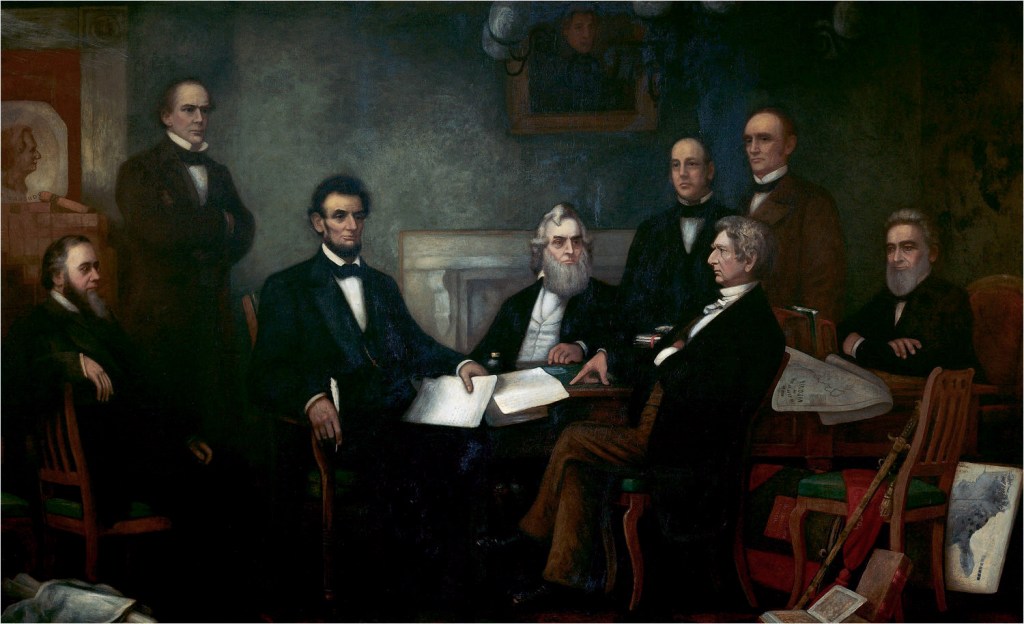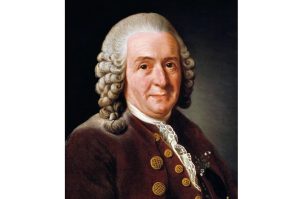Abraham Lincoln’s condemnation of slavery may seem insufficiently forceful to some today — as it did to some in his own time. But without him, the practice might have continued for decades or longer. In National Affairs, Ralph Lerner puts Lincoln’s abolitionism into context:
In Lincoln’s time, as in ours, those who look for and demand a politics of purity have found much to disparage in his Fabianism. Lincoln’s constitutional scruples had kept him from dealing the institution of slavery the much-anticipated death blow. His readiness to compromise, and to seek expedient alliances, dismayed the anti-slavery radicals. His explicit distinction between the urgent and the important, as well as his strict adherence to that principle of action, was nothing they could admire. Purists were impatient with his patience.
And indeed, there was no mistaking the president’s priorities: first and foremost was saving the union. That urgent task came close to overwhelming all others in what would prove to be the bloodiest post-Napoleonic war of the nineteenth century. Dealing with the future of the 4 million slaves in the United States would, for the time being, have to take second place.
And yet the two challenges were inseparable in thought and action. The union saved had to be a union in which the Spirit of ’76 — a spirit of liberty, not of mastery for some and slavery for others — had been revived and restored. In Lincoln’s account, his generation’s fathers and grandfathers — men who had asserted a principle and fought for it — were “iron men.” Both the slaveholders and non-slaveholders who carried out that revolution viewed slavery as a cancer that could not be excised at once, but that could and should be kept from spreading. After decades of denial and disparagement by apologists for the peculiar institution, the revolutionary fathers’ legacy had to be reclaimed. Policies and practices consonant with their moral stance needed to be adopted and followed.
In his new book on African American visitors to Abraham Lincoln’s White House, Jonathan W. White, too, comes out in defense of Lincoln. “Historians,” he writes, “have underestimated the racial egalitarianism that emerged in the Lincoln White House during the Civil War.” Ronald White reviews:
Many historians have tried to understand Lincoln’s journey with slavery. How were Lincoln’s ideas about slavery affected by his 1828 journey to New Orleans, where, at nineteen years old, he first encountered the horrors of slave markets? When the Kansas-Nebraska Act made it possible for slavery to extend west into the territories, how did it restart the political career of Lincoln the lawyer? What did he say about African Americans in his 1858 debates with Stephen A. Douglas, the Illinois senator who attacked Lincoln as the “Black Republican”? Recently, some have emphasized Lincoln’s advocacy for colonization right up to the moment when he first drafted an emancipation proclamation in 1862. Did he craft the final proclamation simply as a shrewd political or military act without any real feeling for African Americans?
White references all these questions in Lincoln’s journey with African Americans, but this is not the story he has chosen to tell. By mining diaries, letters, and memoirs, he has uncovered the White House visits of multiple African Americans, either at Lincoln’s invitation or on their own initiatives. White’s analyses of the nature of those engagements are the depth and breadth of this impressive book. Careful to authenticate his sources, an appendix includes a number of other meetings, which he says may or may not have taken place and thus defines as “unconfirmed.”
In narrating his story, White deals at the outset with the infamous episode of Lincoln’s August 1862 conversation with a committee of five African American leaders who visit the White House. After telling them that Congress had appropriated money for colonization, and suggesting the difficulties of living together, he concludes, “It is better for us both, therefore, to be separated.” Nikole Hannah-Jones tells this story in The 1619 Project: A New Origin Story — but it is one of the few mentions of Lincoln. White wants us to know there are so many other engagements.
In other news
Paul Dean writes about Oxford’s disappearing second-hand bookstores:
In the 1970s, Blackwell’s second-hand department occupied the whole of the top floor. By 2000, it occupied most of the third floor. Now it shivers forlornly in a few feet of the first floor. Will Waterstones, Blackwell’s new owners, bother to keep it? One second-hand bookshop after another has closed in Oxford, leaving two admittedly excellent Oxfams, St Philip’s Books opposite the cathedral, a new small outlet in the Covered Market, and the ominously named The Last Bookshop in Jericho. Thornton’s and Robin Waterfield are much missed. The former still sells online, but, although I plead guilty to online buying, that is not the same. It is like eating the menu instead of the food.
Lausanne’s new arts center the size of five football fields: “A vast new arts hub called Plateforme 10 has opened in the Swiss city of Lausanne with the aim to revitalize the surrounding area… Poised to become a new ‘arts district,’ Plateforme 10 spans 25,000 square meters, the equivalent of five football fields.”
Paramount has said it will not remove historic programs and films from its streaming service that some modern viewers find offensive: “Bob Bakish, Paramount’s CEO, said his company had thousands of shows in its back catalogue. ‘By definition, you have some things that were made in a different time and reflect different sensibilities,’ he said. ‘I don’t believe in censoring art that was made historically, that’s probably a mistake. It’s all on demand — you don’t have to watch anything you don’t want to.’”
When the English loved lazy sports:
Once upon a time, when the fingerprints on the Wimbledon trophy were more or less exclusively British, you could win in SW19 whilst wearing trousers. Even a tie if you go back far enough. But then, back in those days, tennis was a no-sweat sport. Well, perhaps a drop or two, but essentially there was much less of it around than today, when sweatbands, perspiration and frequent toweling off are part of a fetishized display of effort and strain — one that’s often accompanied by verbal ejaculations of sometimes rather alarming severity. I’m sure I’m not the only one who’s been forced to mute Wimbledon at times because of the repetitive baseline grunting. But it wasn’t always this way.
David Pryce-Jones writes about Céline’s novel Guerre, which has just been published for the first time:
Guerre, which means “war,” is a novel that he wrote and virtually completed in the Thirties. Apparently he intended it to be the centerpiece of a trilogy that he never got round to writing, and the draft of Guerre remained part of his personal archive. Gallimard, probably the most influential French publishing house of the last hundred years, is treating publication as a unique and posthumous literary sensation, and the initial print run of Guerre is a massive 80,000 copies. There is something murky, almost fatalistic about its survival.
I write in praise of very small independent book publishers: “Literary publishing may be in a sorry state, but there are a handful of (very) small independent publishers punching above their weight.”


















